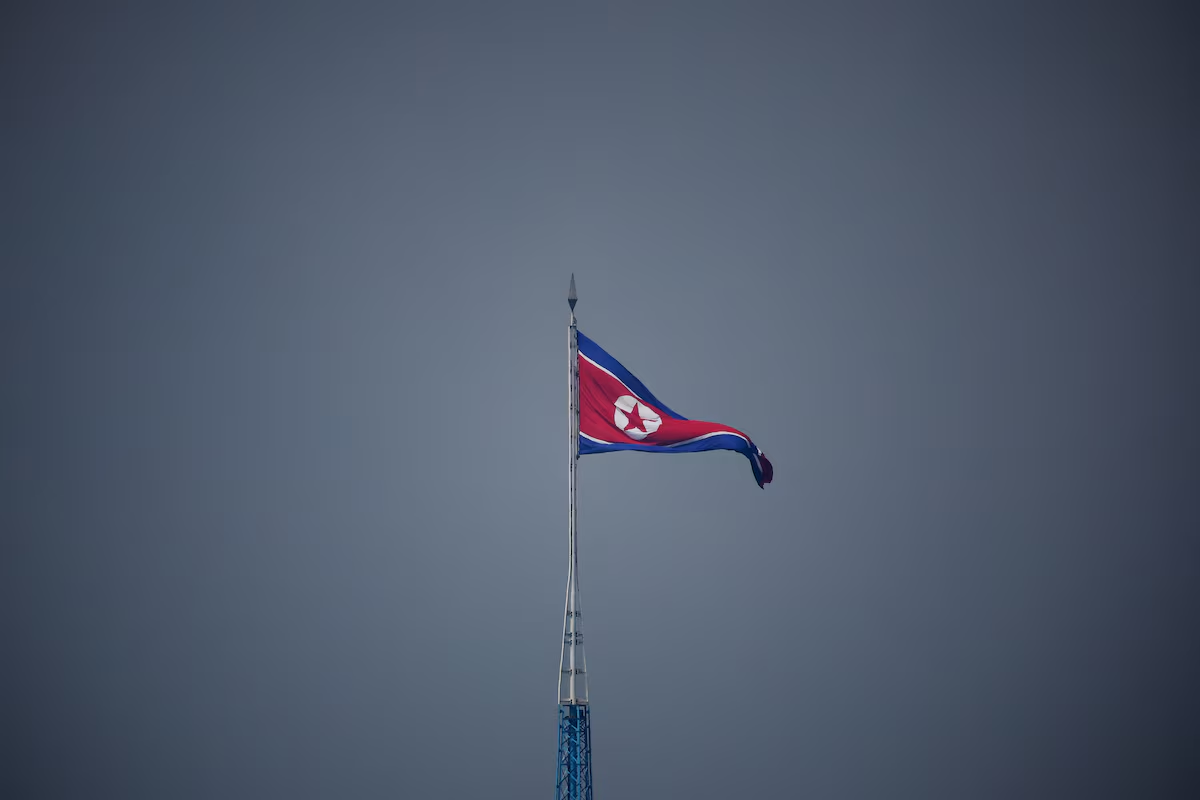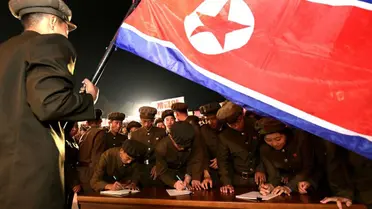North Korea has officially designated South Korea as a “hostile state,” marking a significant shift in its stance toward its southern neighbour. This move follows a constitutional amendment that removes the goal of unification from the national agenda, a decision made by the North’s leadership as part of its broader strategy to redefine its relationship with Seoul. North Korean state media, KCNA, reported the change on Thursday, confirming that the country’s national assembly had amended the constitution in line with leader Kim Jong Un’s directives.

The decision to label South Korea as a “hostile state” comes as part of a larger reconfiguration of the North’s policies. According to KCNA, the North’s military has already taken steps to enforce this new stance, including the destruction of sections of road and rail links with the South. This move, which occurred on Tuesday, involved blowing up 60-meter sections of infrastructure along the border, with the goal of “completing the phased separation” of North and South Korean territories. The North has framed these actions as “legitimate” in accordance with its updated constitution, further signaling its desire to sever ties and cement its isolation from the South.
North Korea’s defence ministry has indicated that the country will continue to strengthen its border measures, including the possibility of further fortifications along the southern border. While there were no immediate indications of other constitutional amendments, the declaration that the South is a hostile state represents a clear break from previous diplomatic approaches that had left the door open to reunification.

South Korea has strongly condemned North Korea’s actions and the constitutional change. The South’s Unification Ministry, which oversees inter-Korean relations, expressed deep concern over the move, emphasizing that Seoul would remain committed to peaceful reunification efforts. The ministry stated that it would not waver from its long-standing position on reconciliation, despite the growing tensions.
Kim Jong Un’s call for constitutional changes to remove unification as a national goal was made earlier this year in January, when he accused South Korea of conspiring with the United States to undermine his regime. He also expressed frustration over what he saw as Seoul’s role in the collapse of North Korean unity efforts. The constitutional amendment was one of the major outcomes of the North’s Supreme People’s Assembly, which met last week.

Although the Supreme People’s Assembly was expected to announce a range of constitutional amendments, state media only reported on the change regarding South Korea’s designation as a hostile state, raising questions about the timing and transparency of the other proposed changes. According to experts, North Korea has previously delayed or withheld information about constitutional amendments, suggesting that the regime may have been cautious in revealing certain sensitive details.
The designation of South Korea as a “hostile state” could further inflame tensions between the two Koreas, which have been escalating since last year. Both sides have declared that the 2018 agreement to ease military tensions is no longer valid, and recent developments have seen a sharp increase in aggressive rhetoric. Pyongyang has accused Seoul of intruding on its airspace, citing alleged drone flights, and has vowed to retaliate.

In response to the North’s recent activities, South Korea’s military fired warning shots near the border on Tuesday after North Korea detonated explosives on its side of the border, targeting roads and railways. The move was seen as a demonstration of the North’s willingness to enforce its new policies, which include the eventual severing of inter-Korean transport links. South Korea has not confirmed whether drones were involved in the alleged incursions, but the accusation has added to the mounting tensions.
The North’s announcement to cut off inter-Korean roads and railways and fortify its side of the border is part of its broader push to establish a “two-state” system. This represents a formal abandonment of the decades-old goal of unification, a principle that has long been a cornerstone of inter-Korean relations. By making this shift, North Korea is signaling its intent to move away from dialogue and cooperation with the South, opting instead for a more isolated and self-reliant approach.
As both sides brace for further tensions, experts say the situation could escalate into a more prolonged period of hostilities unless diplomatic interventions are made. North Korea’s willingness to take drastic measures, such as the destruction of border infrastructure, highlights the serious nature of its break with the South. The international community will be closely watching how both Koreas navigate this new phase of their relationship and whether any steps will be taken to prevent further escalation.




